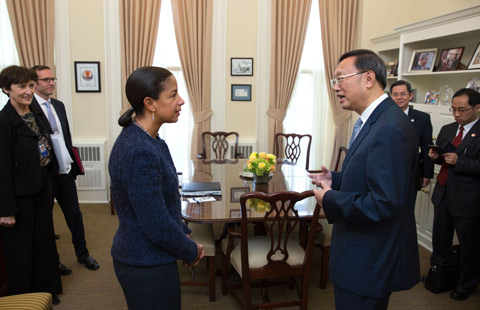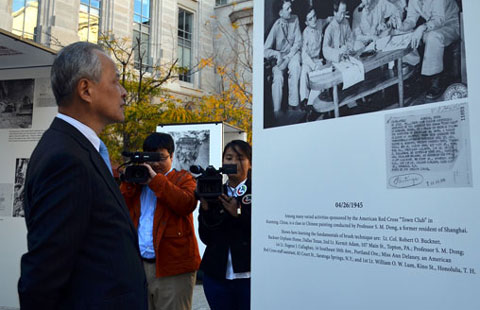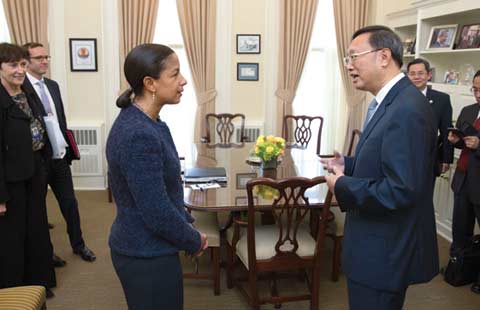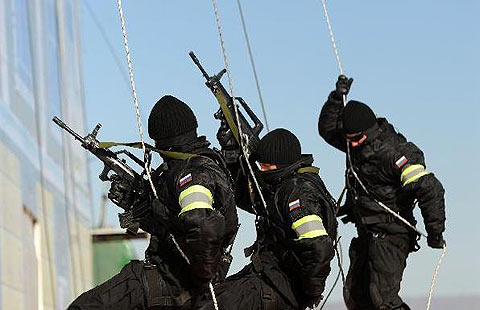WHO: Ebola vaccine trials in W. Africa in January
Updated: 2014-10-21 21:22
(Agencies)
|
||||||||
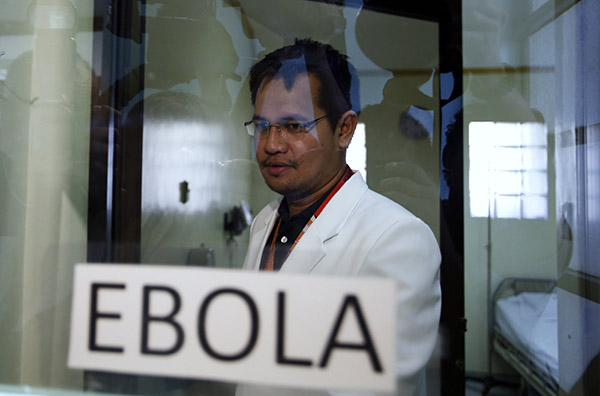 |
|
A doctor stands in an isolation room during a media tour displaying the government's measures in preparing against Ebola at the Research Institute for Tropical Medicine Hospital, at Alabang, Muntinlupa October 21, 2014. [Photo/Agencies] |
GENEVA - The hunt for an Ebola vaccine will produce data soon about whether two experimental vaccines are safe and could lead to larger medical trials in West Africa by January, a top World Health Organization official said Tuesday.
Dr Marie Paule Kieny, an assistant director general for WHO, said clinical trials either planned or underway in Europe, Africa and the U.S. are expected to produce preliminary safety data by December. In the meantime, she said, governments are pushing for immediate "real-world use" of an approved Ebola vaccine.
She told reporters Tuesday in Geneva there are two leading candidates for a vaccine. If the vaccines are deemed safe, tens of thousands of doses will be used in trials in West Africa beginning in January to test their effectiveness, she said.
One of those vaccines, developed by the U.S. National Institutes of Health and GlaxoSmithKline from a modified chimpanzee cold virus and an Ebola protein, is in clinical trials in the U.K. and in Mali. It will be used in clinical trials in Lausanne, Switzerland, by the start of February.
The second front-runner, developed by the Public Health Agency of Canada and known as VSV-EBOV, has been sent to the U.S. Walter Reed Army Institute of Research in Maryland for testing on healthy volunteers, with results expected by December. The next stage would be to test it more broadly, including among those directly handling Ebola cases in West Africa.
Canada has donated 800 vials of the experimental vaccine to WHO but the shipment was delayed by a Lufthansa pilots strike. It is now expected to arrive in Switzerland on Wednesday for testing coordinated by the U.N. health agency among volunteers at the University Hospital of Geneva, and volunteers in Hamburg, Germany, and in Gabon and Kenya, Kieny said.
"These data are absolutely crucial to allow decision-making on what dose level should go in the efficacy testing in Africa," she said, referring to plans for the broader testing starting in 2015.
At a separate news conference, WHO spokeswoman Fadela Chaib promised a thorough public audit of the agency's early missteps in responding to the Ebola outbreak that has already killed over 4,500 people.
"There is certainly a wish and a will to have this review," she said. "We know many elements need to be explained in the future. ... WHO will do that, but in the future; now our focus is on the response."
- WHO: Ebola vaccine trials in W. Africa in January
- Manchester investment portfolio launches in Beijing
- Ukraine denies using cluster bombs
- Russia temporarily bans fruit, vegetable imports from Ukraine
- Putin, Medvedev offer condolences over Total CEO's death
- Comedy impresario eyes humor to replace hatred
Most Viewed
Editor's Picks

|

|

|

|
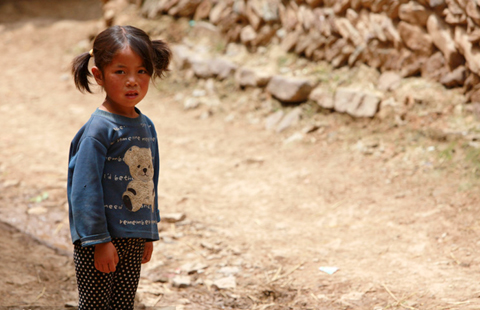
|

|
Today's Top News
Li upbeat despite economic slowdown
Students warned of online encounters
China to fund non-profit art performance
US, China co-op to train future Afghani diplomats
Priceless Chinese scroll may be gone
Alibaba digs 'deep' in mobile search deal, calling it critical piece
New services for Chinese small biz
New help offered to Chinese businesses
US Weekly

|

|

